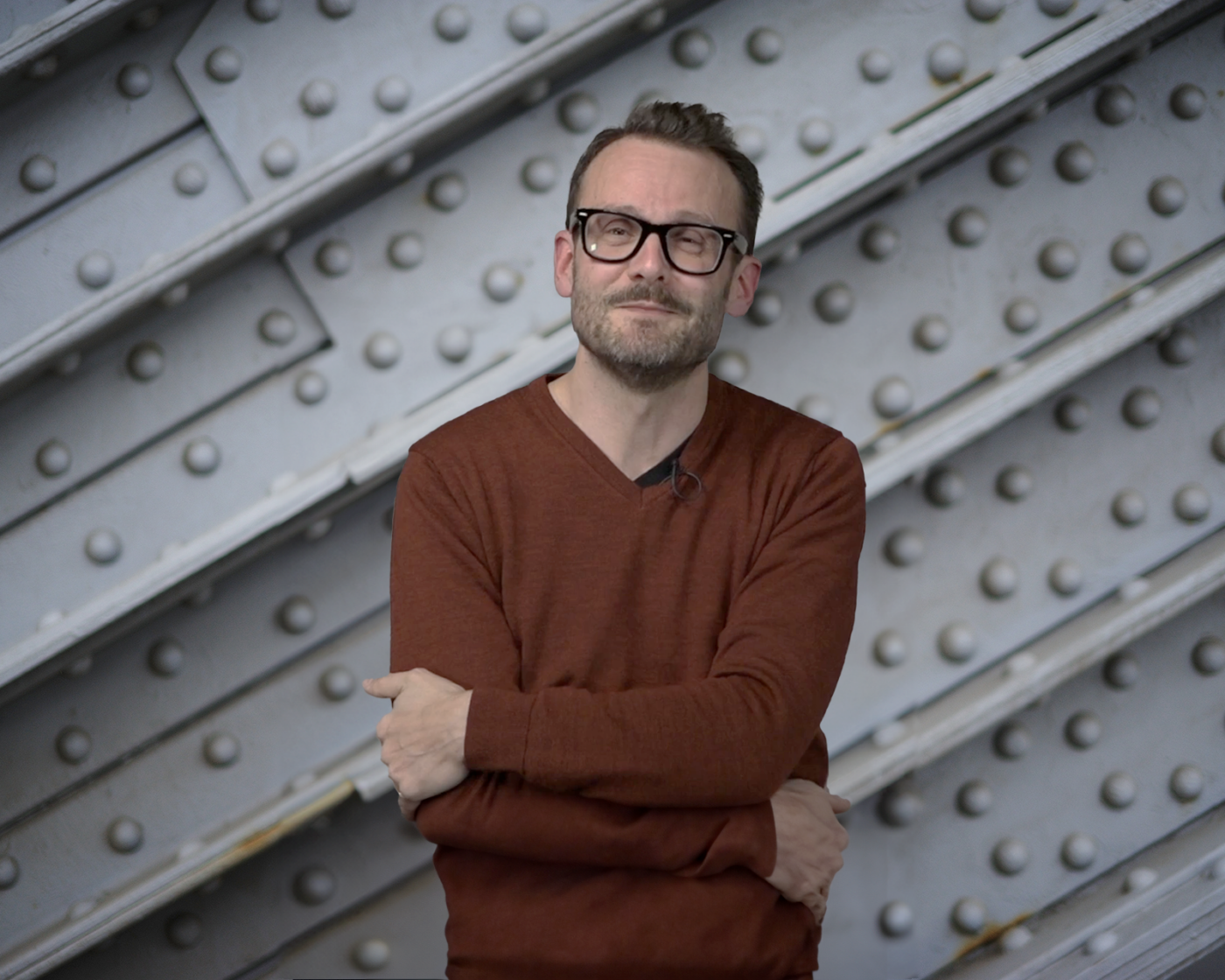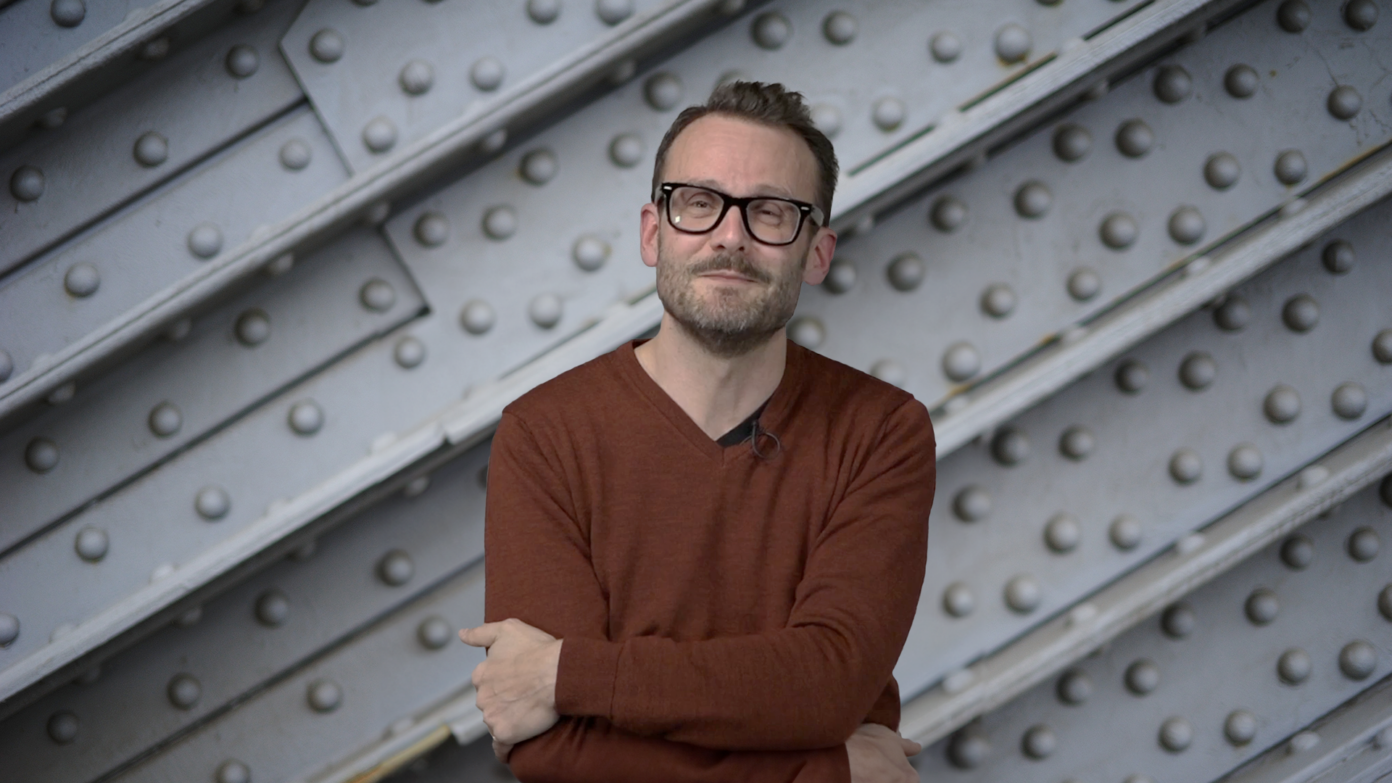You popularized the concept of “care ethics” in France. What is this concept, which comes from North America and feminist studies, concerned with?
There is indeed no French word that encompasses both an attitude of care toward others and an entire field of occupations that are essential to society. In other words, those who are involved in processes done daily in service of others. These include healthcare workers, of course, but also cashiers, delivery people, cleaners, babysitters, drivers, warehouse operators, postal workers, industrial workers, farmers, and so on. These are all essential jobs within our society and we realized their importance during the spring 2020 lockdown, in contrast with those “we can do without” in crisis situations.
Care work is often associated with a service offer, which makes it very ambivalent. There is something beautiful and generous in the word “service,” which stems from care and solidarity. But there is also the idea of being “at the service” of others, which means that the work provided is taken for granted, devaluing that labor tremendously, when not simply causing it to be unpaid. Little consideration is currently given to care work and it sometimes even deliberately made invisible. Though care givers are the focus of renewed attention, through gestures of gratitude including, famously, the applauding of health workers during the recent pandemic, it is clear, however, that unequal social treatment persists. This act of giving thanks hides the acknowledgment that an entire population is being “put at the service” of society. Being on the receiving end of the applause was even sometimes aggravating for healthcare workers, as they would have preferred benefiting from improved working conditions and actual measures aiming to enhance their standing in society. Awareness of the importance of these professions was not sufficient to challenge established social hierarchies and, only a few months later, the applause died off. We thus witnessed brutal visibility followed by immediate oblivion.
These mechanisms of visibility and invisibility have been extensively studied, especially concerning ethnic minorities. They reveal an eagerness to make invisible that which becomes visible. But this has at least helped highlight the denial of the Western world regarding the way in which our lives depend on the services provided by an entire class of people. Those who appear most independent are in reality the most dependent among us. A businessman, for instance, might rely on a secretary, a cleaning lady, a babysitter, and a wife who will take care of certain family chores. A businesswoman might also have a whole troop at her service helping her in her success. The empowerment of these individuals is thus built on the support bubble formed around them.
The idea of care is now returning with renewed momentum, but the question itself is an old one. It was theorized in the 1980s by Carol Gilligan, a psychologist who was interested in the moral development of children, particularly based on their gender. She came up with the idea of care ethics after observing how a little girl and a little boy reacted to the Heinz dilemma. In this moral dilemma, the child faces a situation where a sick parent can only be cured with a drug costing far more than what the household can afford. The little boy and the little girl reacted in a very different way. The little boy was intent on stealing the drug, justifying his position by pointing out that life is more fundamental than property, while the little girl anticipated how this would lead to escalated consequences for the family. Instead, she opted to try and convince the pharmacist by explaining the situation to him. Her response is often seen as confused and unethical, while the little boy’s, which establishes a new moral law, tends to be viewed as being the correct one. Carol Gilligan uses this difference in judgment to reveal how an essential style of moral reasoning focused on taking into account all the facts of a problem is written off. We discover ethics that are much more centered on responsibility than on good and evil, as well as duty.
Two distinct moral channels thus emerge. The majority one, whether in law or in philosophy, is categorized as “masculine,” while the other, often disparaged, is viewed as “feminine.” Obviously, this doesn’t mean that all men would follow the first type of reasoning and all women the other, but it does characterize socially constructed orientations and thought patterns, as women are encouraged to adopt certain attitudes that are disparaged in men. In her book In a Different Voice,1 which was a huge success in the United States of the 1980s, Carol Gilligan emphasizes the importance of hearing that “different voice.” The foundation of care is therefore a feminist one, since it recognizes the existence of an unheard voice, which is that of women in general. It departs from the conventional view of morality by inviting reconsideration of a response that is perceived as too personal and confused, contributing to exclude women from public, moral, and political discourse. These recognition gaps remain, and Carol Gilligan argues in her recent book Why Does Patriarchy Persist?2 that this is the case because men are prevented from engaging in a certain type of discourse.
The ethics of care includes the concern for others, which ties it closely to self-care and a form of individualism. This dimension is key, as truly selfless or absolutely dedicated individuals aren’t in a position where they can provide care. Individualism carries negative connotations, implying underlying narcissistic and selfish attitudes. Yet, it is also about individuality, about what sets us apart from each other. Since we can only advance morally by anchoring ourselves in our individuality, by finding our own voice, this “perfectionistic” individualism is vital for democracy. It consists of relying on the specificity of each person to connect care for others and self-care.
Although Kant had already considered otherness through his principle of reflexivity, care conveys a novel idea—that the expression of affects is morally relevant. Care is thus this form of moral disposition, paying attention to people and their sensitivities, as well as their particular needs. Needs, which vary across individuals and situations, are indeed central to these ethics. It is impossible to decide what the proper moral conduct should be based on general principles applied to a particular situation. The decision must come from a thorough observation of the situation itself. This is where care, like architecture, engages a “contextualist” philosophical approach.
We are now experiencing a convergence of struggles—women, the invisible parts of society, the environment, and so on. Does care play out at all levels, from the most local to the most global, in the same way?
Caring for others, which is a corollary of “care” for the context, cannot in fact be separated from caring for the environment. Care is nevertheless applied primarily at the local level, only later leading to impacts on the global scale. It is important to note that, whatever the focus of care—toward people or the environment—it is spatially divided. Consider the household. First-wave feminism sought to obtain equal rights, calling to attention the fact that the private sphere is no less political than the public sphere in the sense that it is also a place where equality is a concern. But what we are now realizing is that women are actually achieving professional success by passing on a number of domestic chores they used to handle to other women. The new division of chores has ultimately had very little impact the men, since men have only increased the time they devote to household chores by an average of six minutes over the course of the past century. Domestic work is therefore delegated and outsourced to other women, generally from countries in the Global South. There is talk of a “care drain,” parallel to the brain drain. Indeed, we are witnessing the migration of people who are putting themselves at the service of others, a form of exploitation of human resources quite similar to what we observe with the environment. In the twenty-first century, the number of women migrating for work has exceeded that of men, who were formerly the main export labor force. Care migration is now one of the main migration flows and it is driven by the same processes related to global inequality.
As for the environmental question, it ties in very closely to the attitude of care, generally provided by women, as reflected in eco-feminist thought and demands. Concern for the environment does not only involve nature in the abstract sense, wilderness, biodiversity—what I call the “environmentalism of the rich”—but is closely correlated with everyday concerns. More concern is given to the overexploitation of resources, the drying-up of water sources, or soil pollution, which are causing lands to become uninhabitable for everyday life. The global preservation of the environment can only happen through everyday actions, by establishing new lifestyle routines and consumption patterns. Abstract ideas and decisions, with their elusive immediate effects, cannot have a real impact on our ecosystems. The only way we can really change the face of the environment is in our everyday lives.
Concern for the environment—which lies in local action and the understanding of the degradation of our daily landscape—has thus far very largely been borne by women, the reason being that, globally speaking, women take care of food production and preparation. As a result, women are at the forefront of ecological disasters and their repercussions. Not to mention that it is mostly women who take care of children and the vulnerable in communities. It is therefore women who will be the first to worry about having a proper, livable, and healthy environment. I am thinking in particular of Vandana Shiva or the Indian women of Plachimada, who chained themselves to trees to protest the installation of a Coca-Cola factory that was depleting the water table. These women, who draw water from the wells, were the first ones to understand the threat.
Generally speaking, ecological concerns arise from a moral disposition to care for others, which is inextricably linked to the concern for loved ones, for the household, and therefore to the condition of women. The terms ecology and economy share the same oikos, the concern for what surrounds us. And who cares most about our living environment? The people who are constantly involved in it and who generate it—that is, women.
Does a care-based approach lead to a particular set of ethics or modes of action?
It is interesting to see the way in which women, but also a large part of the invisible population, work to improve our daily environment. This calls into question the very notion of morality. In its conventional meaning, morality relates to impartiality, which consists in removing oneself from the specifics of situations in order to give them equal treatment. Under that perspective, we should have the same environmental requirements for all countries, including those that have suffered pollution generated by others. But this “fair” treatment is precisely what we should question, because it does not account for the geographical and historical situation of places.
Care, therefore, very quickly comes into tension with fundamental moral questions around the principles of equity and impartiality. I find it essential, on a moral level, to realize that there are deeply rooted inequalities which require, if we are to work to reduce them, an unbalancing or for us to act in a differentiated way. The extremely tense debates around decolonization or Black Lives Matter raise a number of questions for which the theoretically dominant Western world has imposed its standards of thought, and therefore its ethics, politics, and vision of the world. The ethics of care and decolonial studies call attention to the existence of historical injustices in the way countries have been treated. There is nothing revolutionary about this. Everyone is aware of these inequalities. Yet, they persist nonetheless, appearing almost integrated in society. The lockdown has further highlighted this state of affairs, as these disparities translated into differences in mortality rates among ethnic groups, including in France, revealing the extent to which certain populations were more exposed than others, due to their geographical distribution, need to use mass transit, and their distance from their workplace, as well as the extent to which they were considered expendable, exploitable, and fundamentally unimportant. In the Paris region, the populations living in Seine-Saint-Denis were thus overrepresented among those that were contaminated in the public transport system during the epidemic, because they were overrepresented among those performing tasks that could not be done remotely. The Black Lives Matter slogan expresses this perfectly—there are lives that matter less than others, and all the more so on the global scale.
The massive death toll in the Mediterranean in recent years, for example, seems to have been treated as less important than deaths viewed as being closer to us, for example in terror attacks. This might seem natural, since care consists, first of all, in caring for loved ones, but care also teaches us to expand our circles of moral concern, from the household to the environment and strangers. The idea here, as in the Heinz dilemma, is to engage our responsibility and reasoning in much more egalitarian and democratic terms vis-à-vis our relations with distant people. It’s about adopting a systemic vision and stepping out of our self-centered positions. Fundamentally, care isn’t only a concern for loved ones, but a connection and a global, deterritorialized concern.
As for modes of action, one of the means of resistance that is specific to care is, of course, civil disobedience. It is an approach that has become central in the fight for environmental preservation, and is also favored by feminists and discriminated racial groups given that civil disobedience is precisely the tool used by those who have no say in the conventional political framework. It helps expose unfair situations in the public arena. It should be emphasized here that this isn’t just any form of illegal action, but an approach that goes against the law to bring basic injustices into the open, while always respecting the key principle of nonviolence. This kind of peaceful collective action aims, through provocation, to expose the violence of a situation or state, which will be made visible in the way it tries to suppress it. A good example is that of Cédric Herrou whose trial reveals an unfair situation as he was brought to justice for having helped migrants.
When it comes to the environment, however, it is more difficult to go after a well-identified opponent. It is obviously possible to turn against large corporations, but their connection with policies is less straightforward, since no law forces anyone to pollute. Action then involves occupying places, activists chaining themselves to trees, or taking down portraits of heads of state—a series of symbolic gestures that are not in themselves illegal.
Care has long been considered puerile sentimentalism, but we now realize that it is a conceptual, analytical, and deliberative tool that helps take into account vulnerability and responsibility. These concepts appear more fundamental than ever in a world devastated by self-centered attitudes and a radical indifference publicly expressed by heads of state including Trump and Bolsonaro, who don’t wear a mask despite of COVID, or consider that climate change is a hoax. This staging of an avowed “I don’t care” attitude only exacerbates the resentment of people whose societal value is played down. I am therefore deeply convinced that care is not only a moral tool, but also a political tool, closely connected to the idea of democracy.
You took part in managing the CNRS’s Mission for Interdisciplinarity between 2011 and 2017. How can this methodological and theoretical imperative serve the intelligence of concrete action in the field of care?
I am convinced that interdisciplinarity is absolutely crucial, especially given that it creates interactions between the social sciences and the humanities, on the one hand, and the so-called hard sciences on the other. It is quite common for a philosopher like me to work with sociologists or psychologists, whereas it is much more unusual (though just as essential) for the social sciences to be included in addressing certain scientific issues. We are very far from that point, however. The Fukushima disaster had just occurred at the time of the mission, and the question was primarily approached from the perspective of nuclear physics and chemistry, although, for me, the main concern was a human one.
This applies to many different issues, including those raised by the life sciences, artificial intelligence or, more recently, by COVID-19, with its scientific advisory boards composed solely of medical doctors. Not including the broader society in the discussion strikes me as deeply undemocratic and very non-holistic. During this mission to the CNRS,
I therefore worked to involve interested parties in the decision-making process through participation mechanisms and participatory science. I fought to ensure that scientific expertise wouldn’t be the only form of expertise to be taken into account and for social sciences, history, and philosophy to also be included.
We live in a world where humans are the cause of existential threats. Moving beyond the future of the planet, which will survive very well without us, the priority is to protect humanity. Humanities and social sciences must therefore play a central role when the decisions to be made concern humans—even when it comes to things like sending people to Mars. In the case of Fukushima, for example, it is clear that the accident was partly caused by the fact that a region was being exploited and put in the service of the Tokyo megalopolis. There again, a population was given less value than others. It is impossible to grasp the complexity of a situation, even in the case of an accident or disaster, without taking into account data made invisible and considered secondary. We always come back to the idea that attention and contextual analysis, which allows considering vulnerability and responsibility, are key to solving problems, whether scientific or social.





